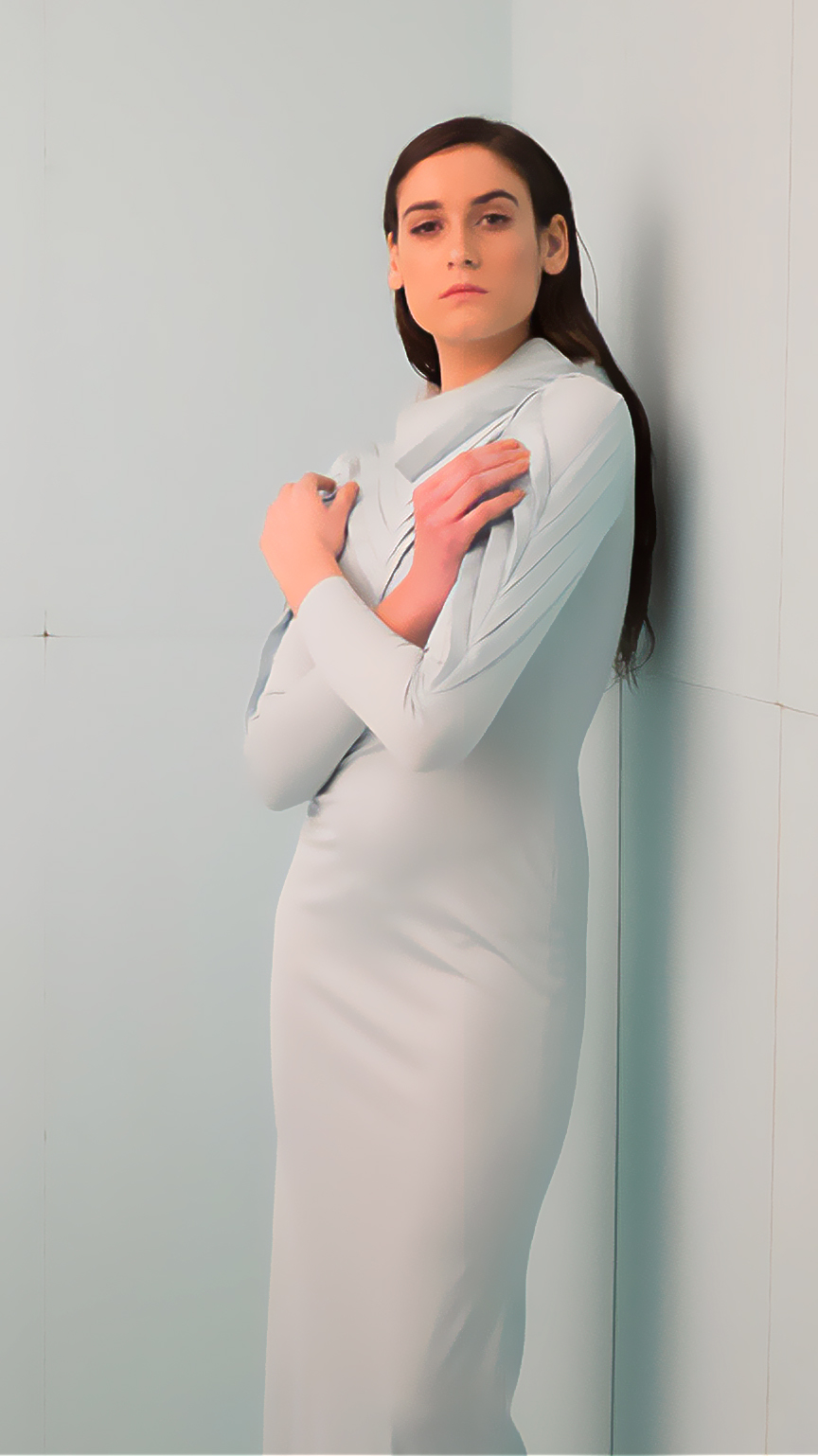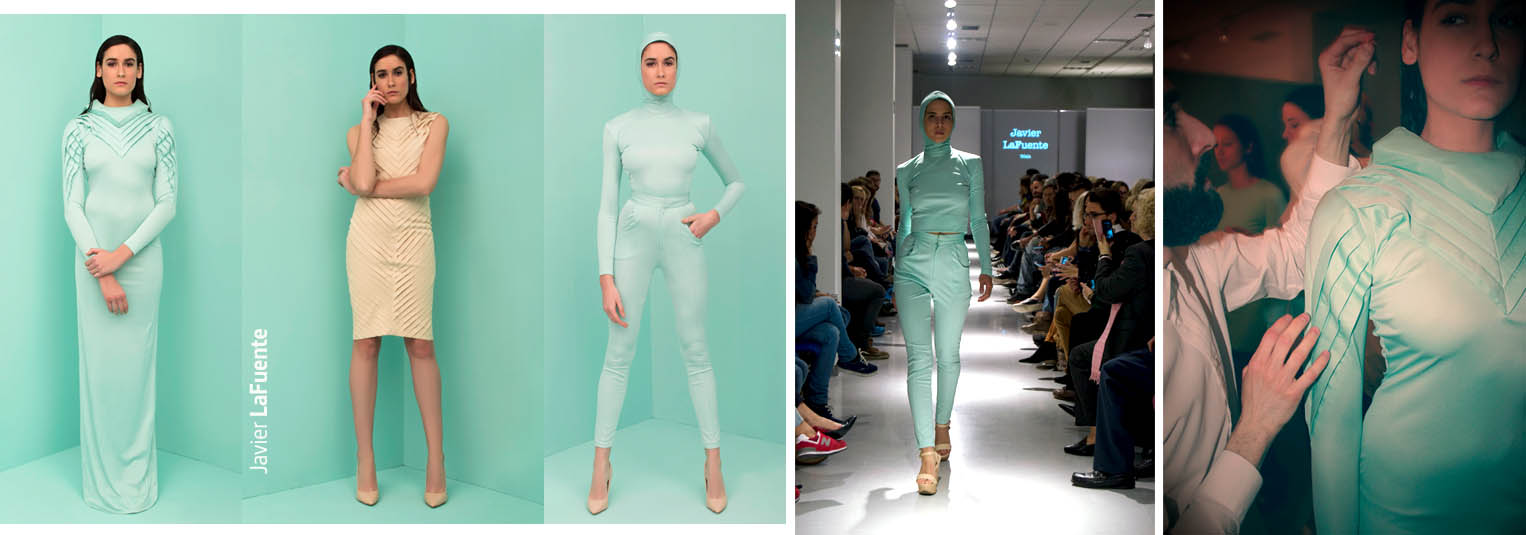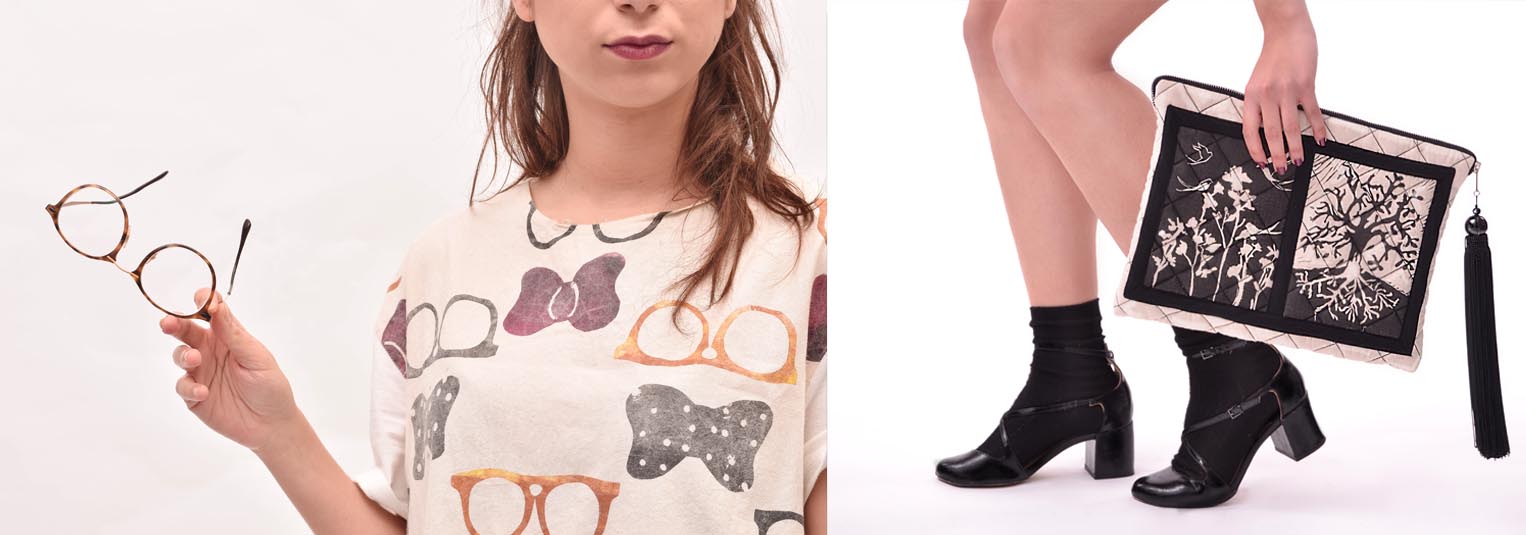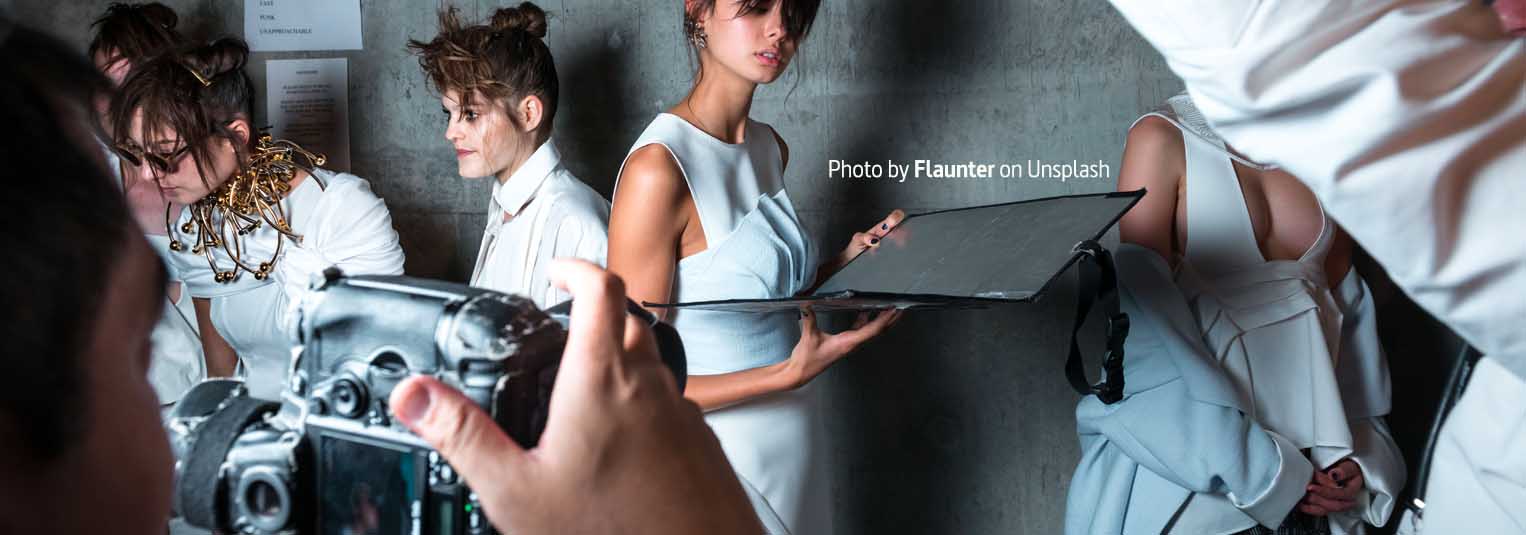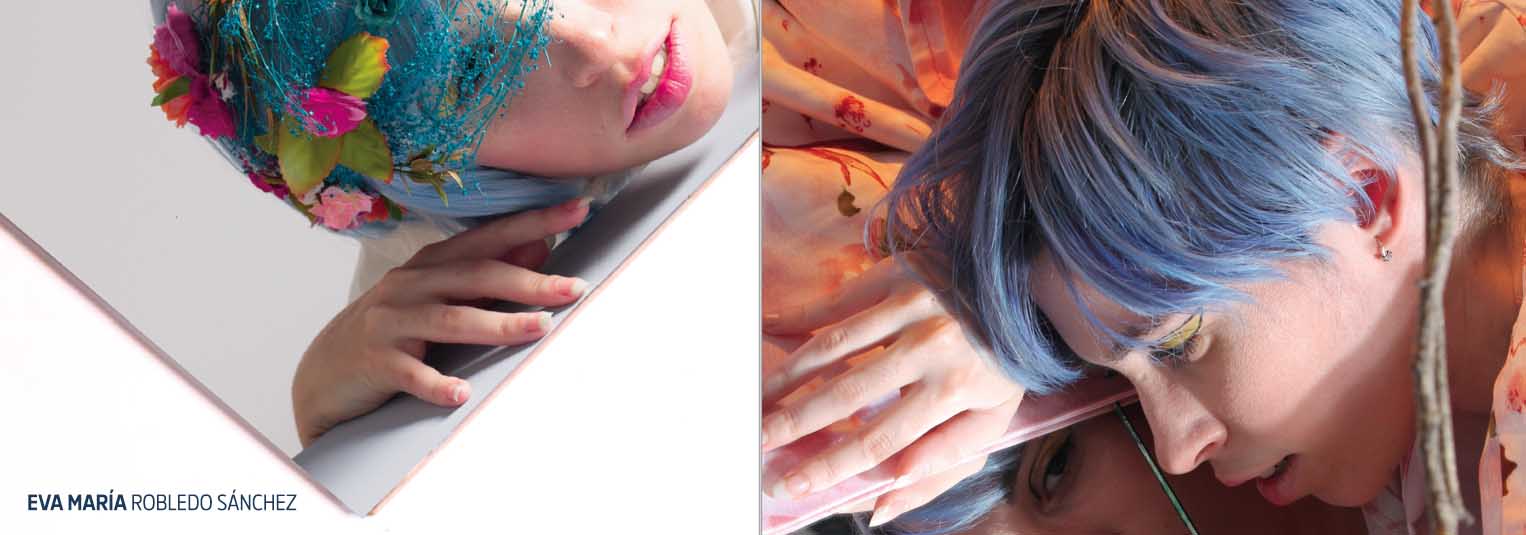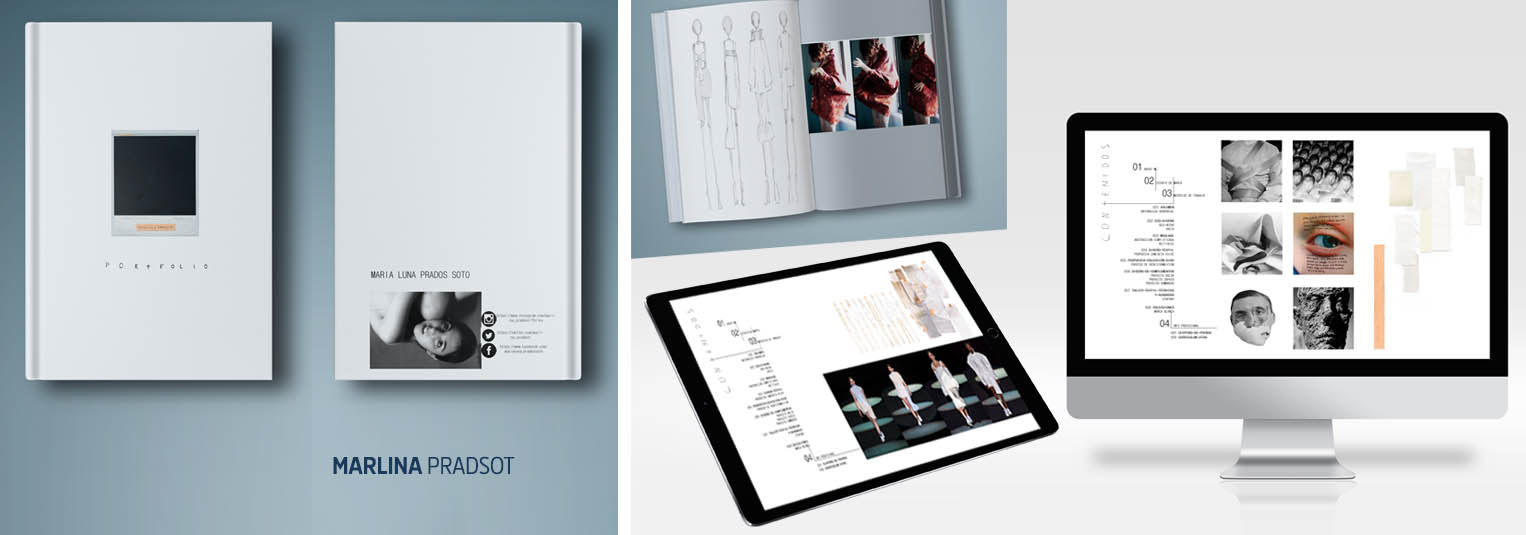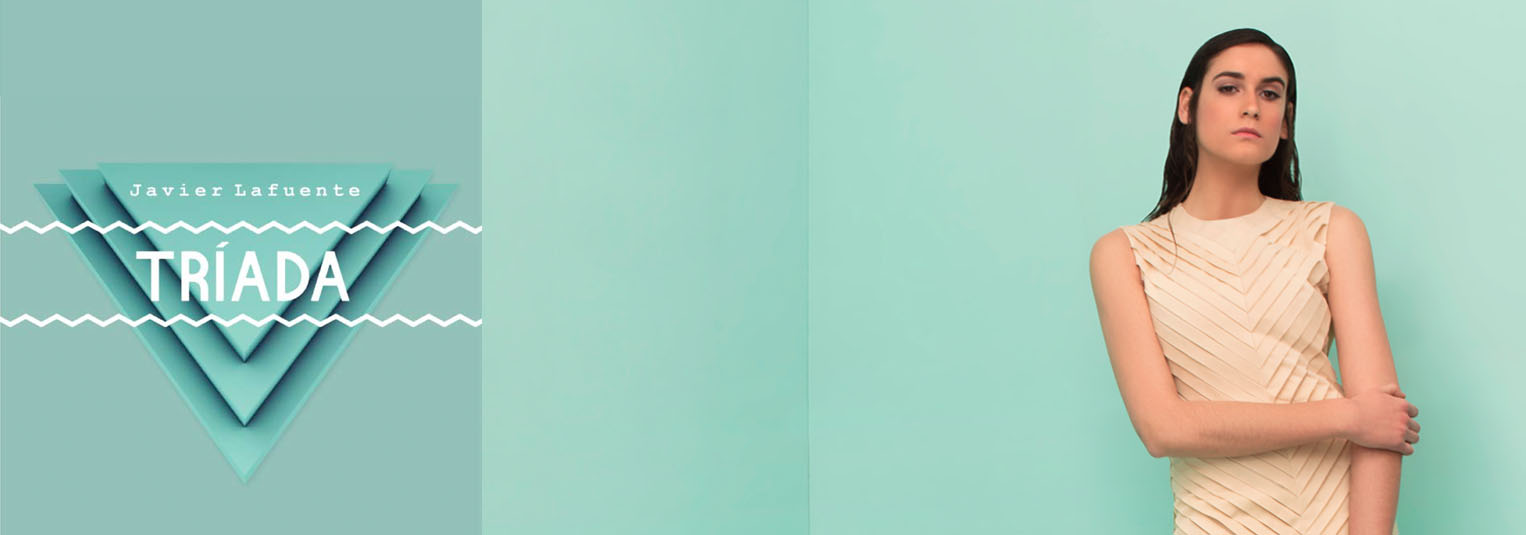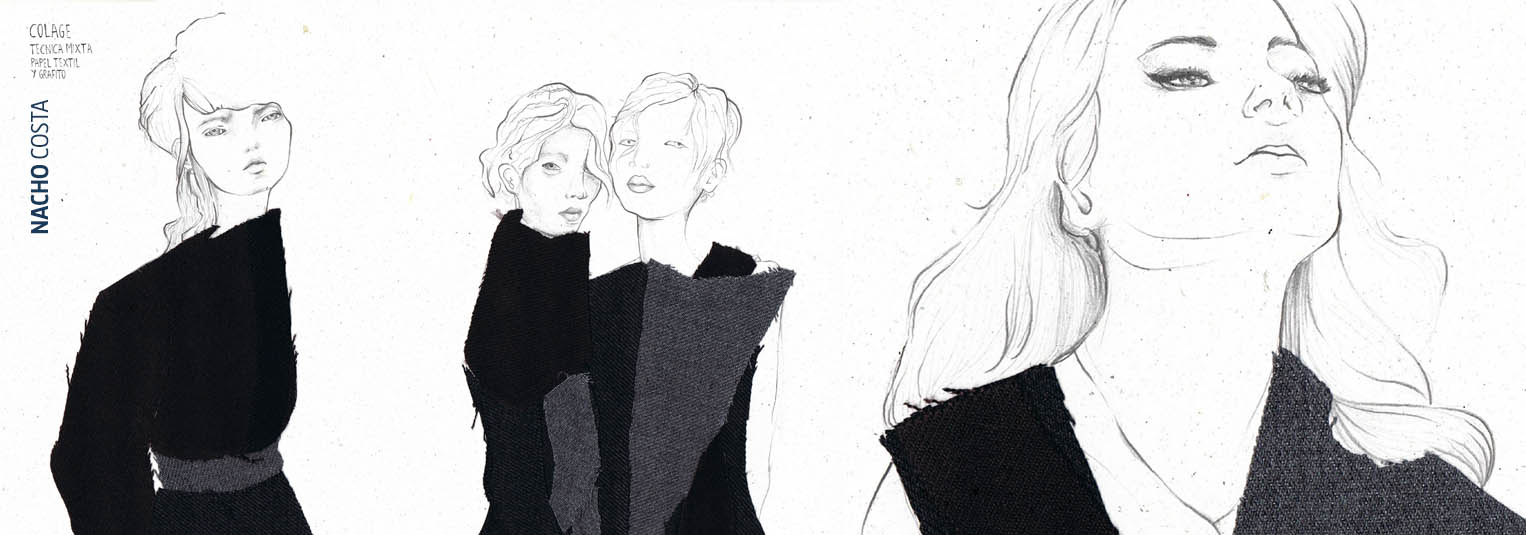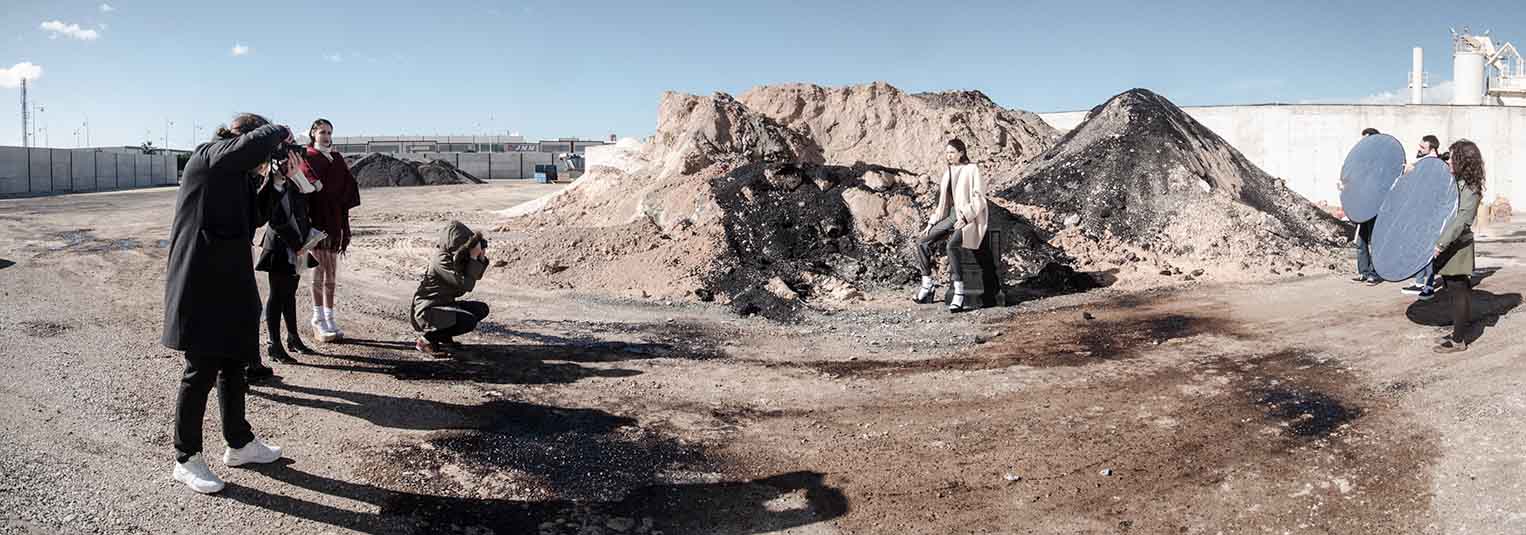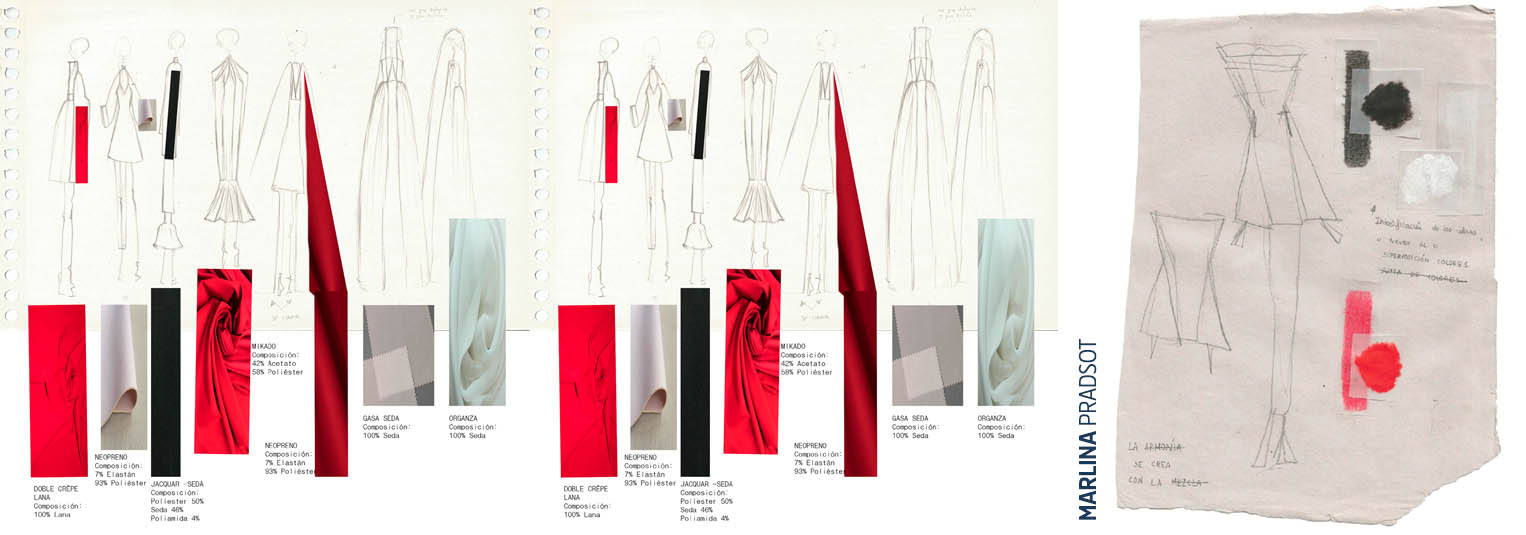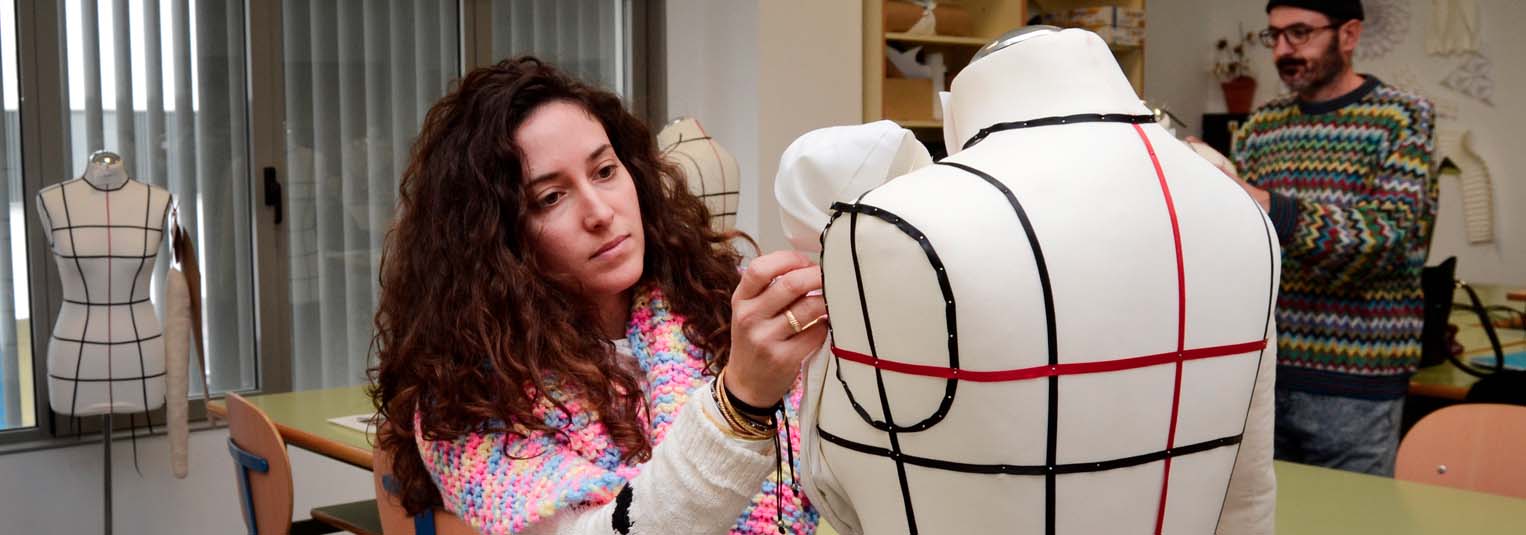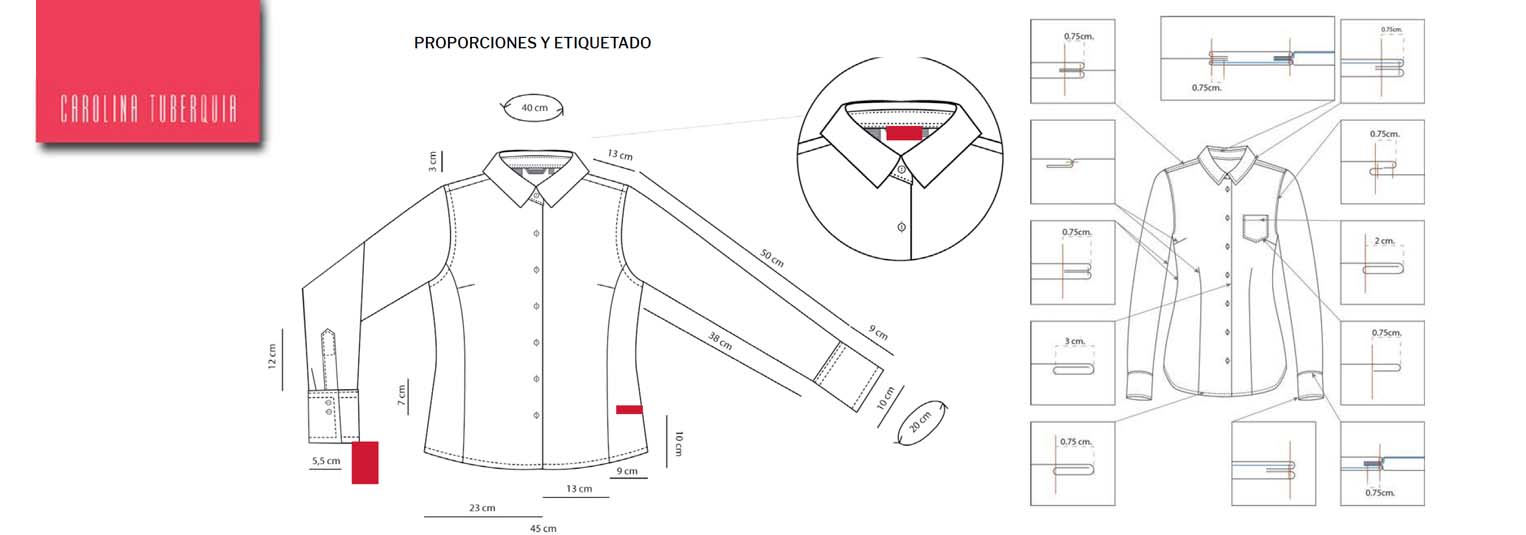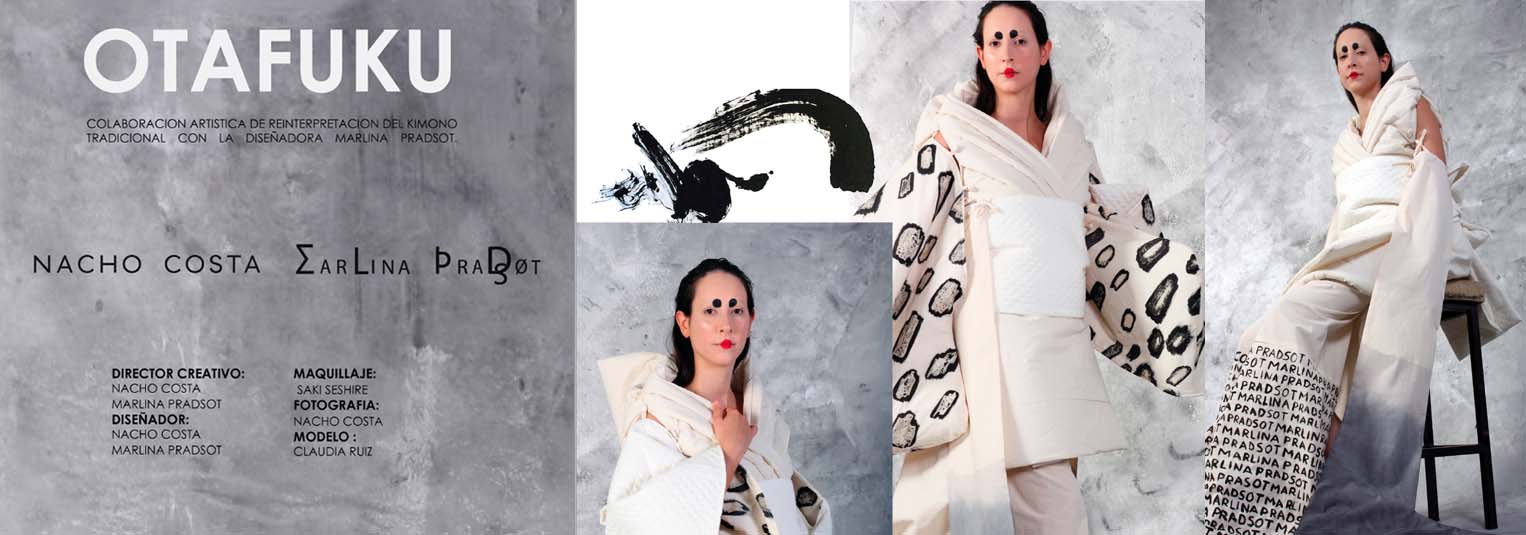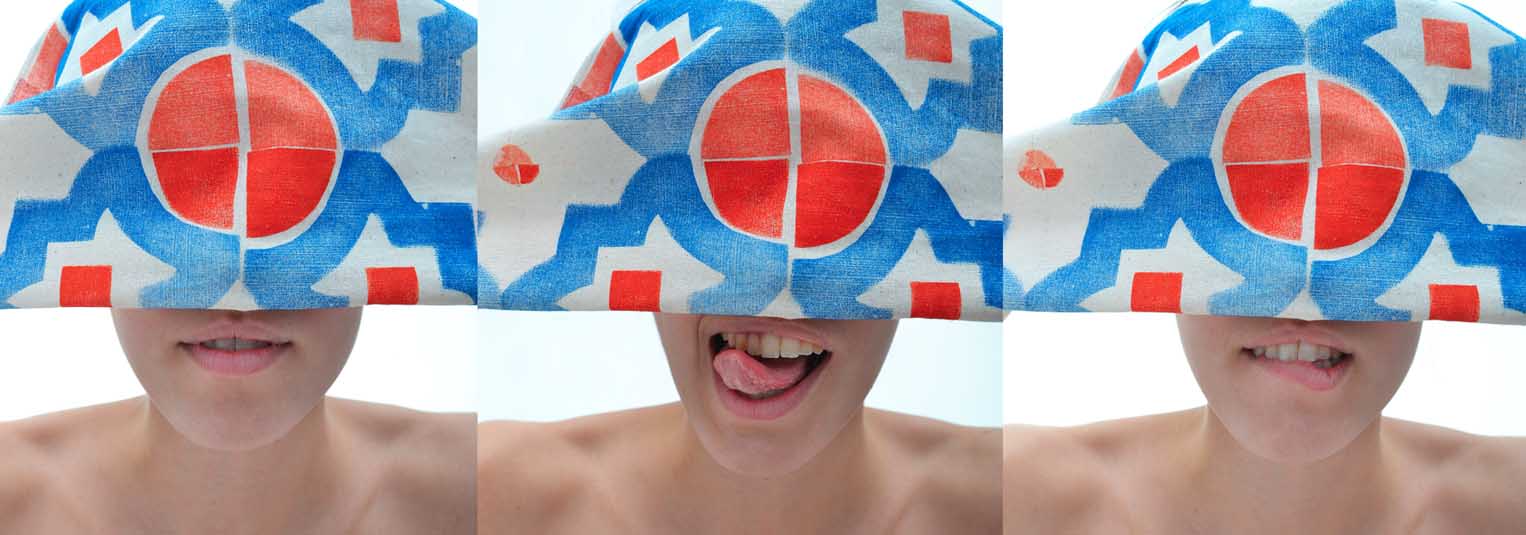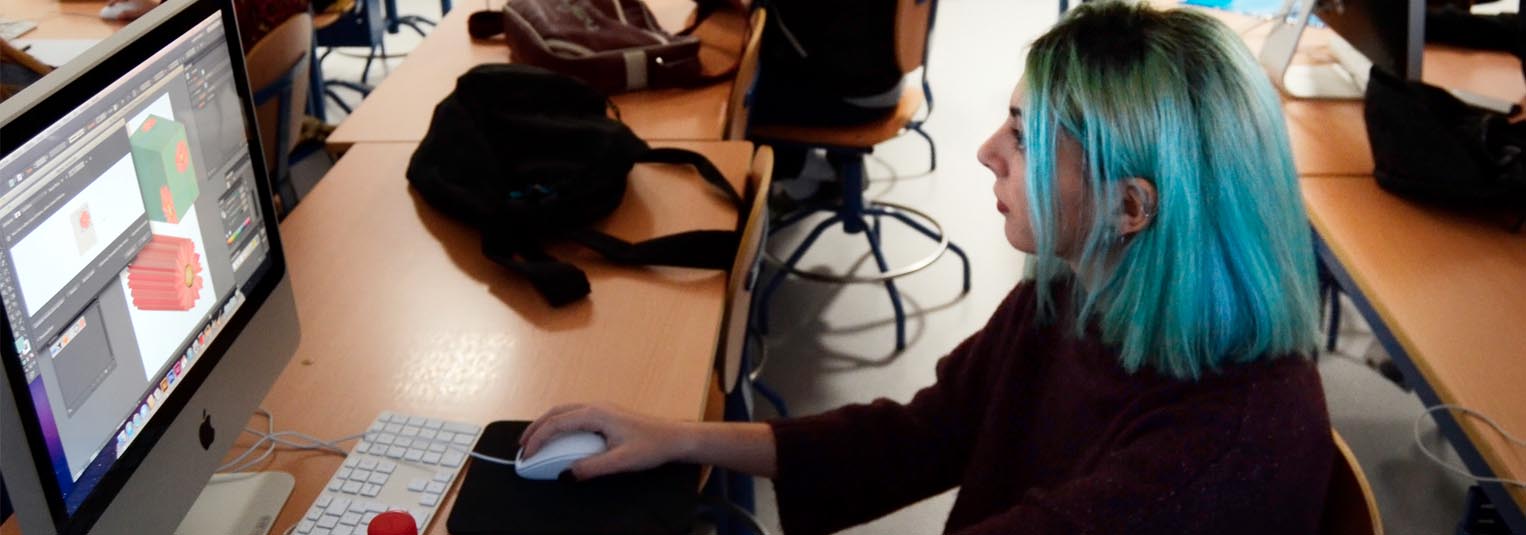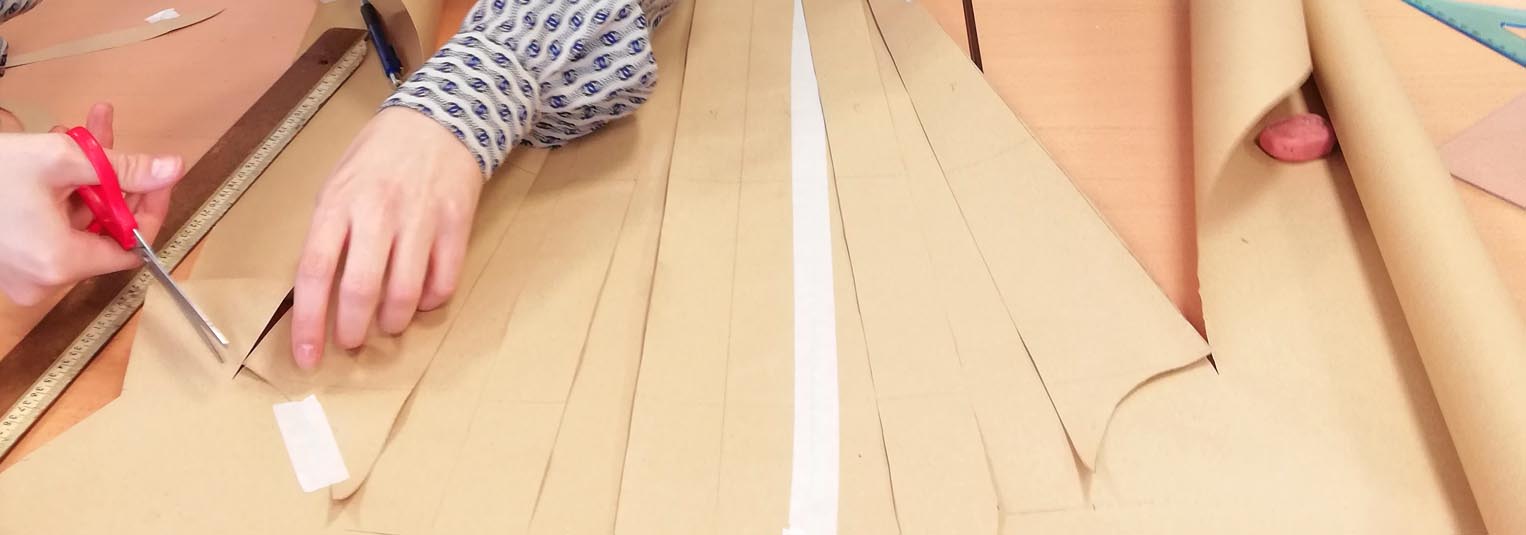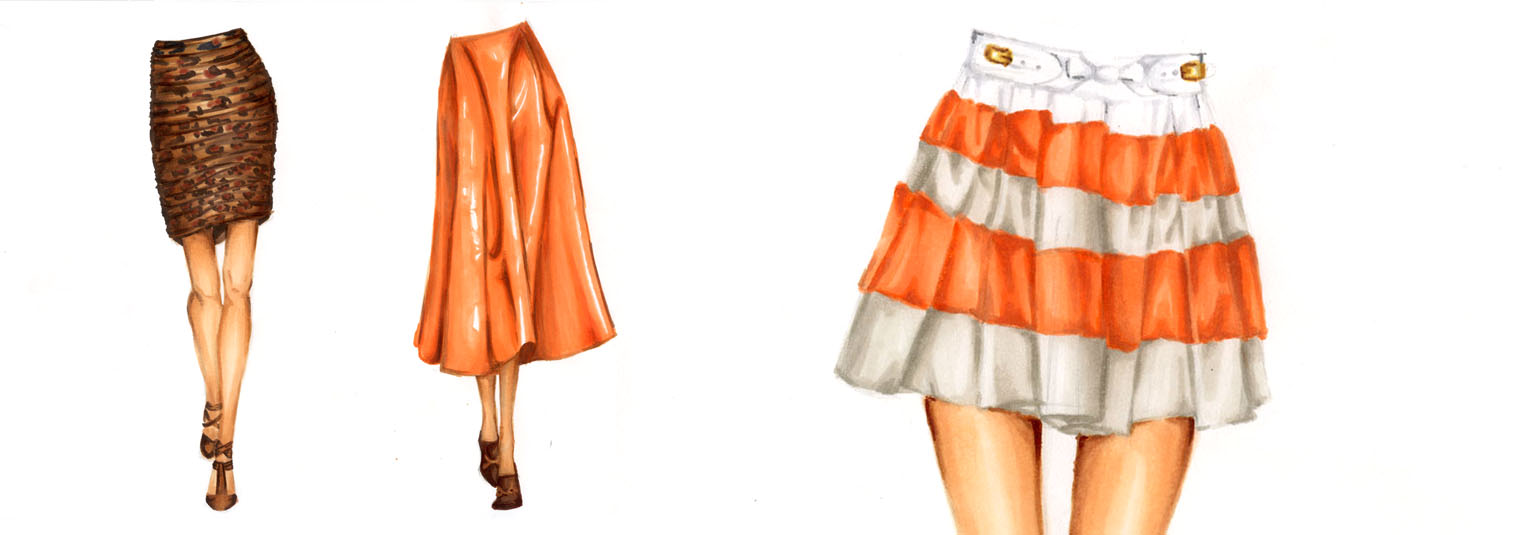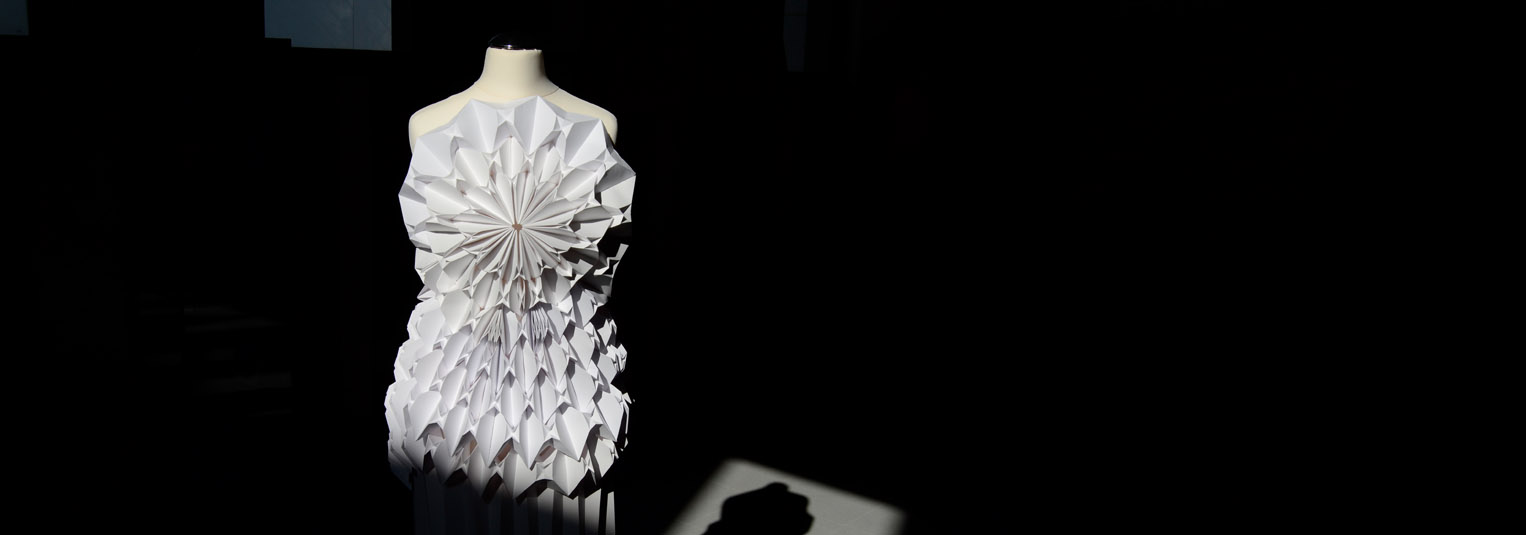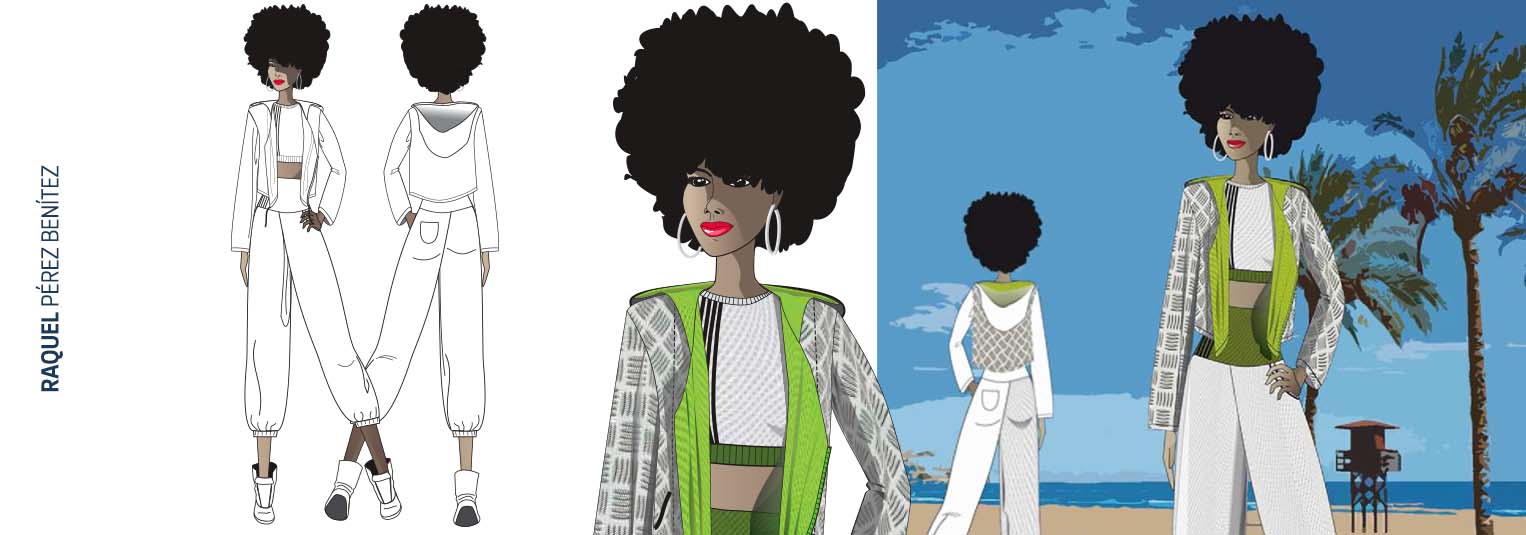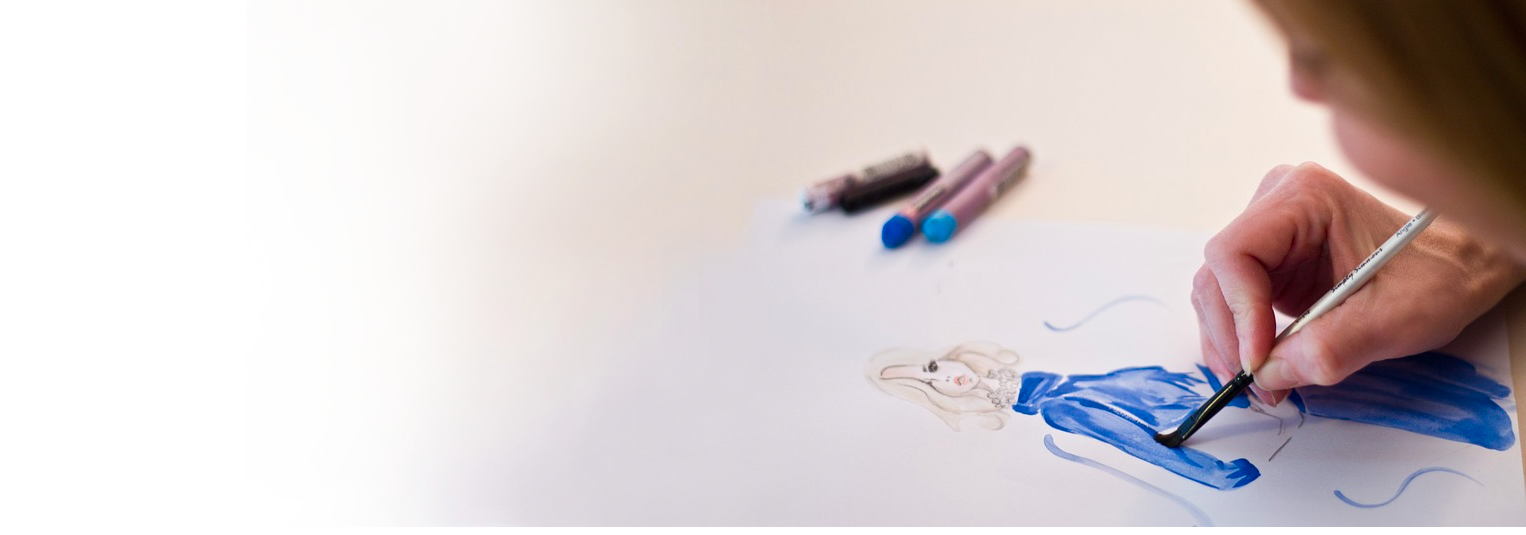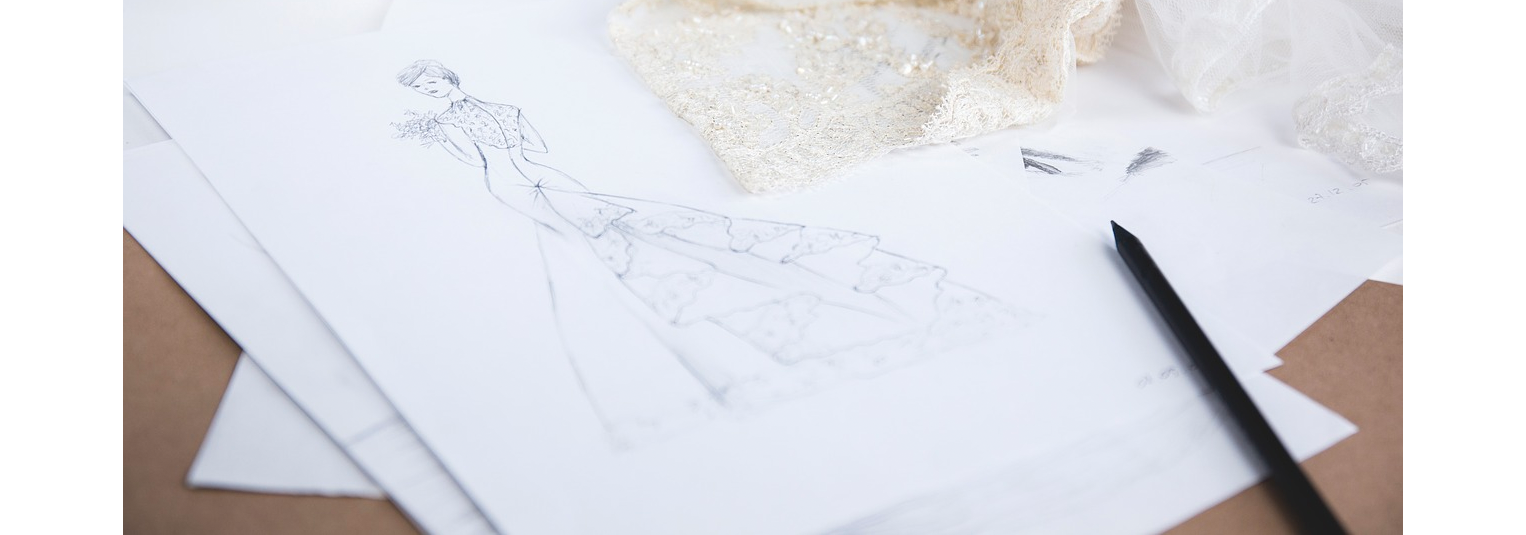Fashion Design
Higher Education. Art Degrees in Design
4 years
8:00-14:30 h
The fashion industry is an economic and cultural reference both worldwide and national. This competitive and international environment requires a higher qualification. In order to achieve that goal, this 4-year-course offers a complete development on theoretical, technological, business and creative knowledge, focusing on the different fields in fashion.
This program is equivalent to the European Graduate Qualification, and will allow you to progress to post-graduate, master’s and PHD courses.
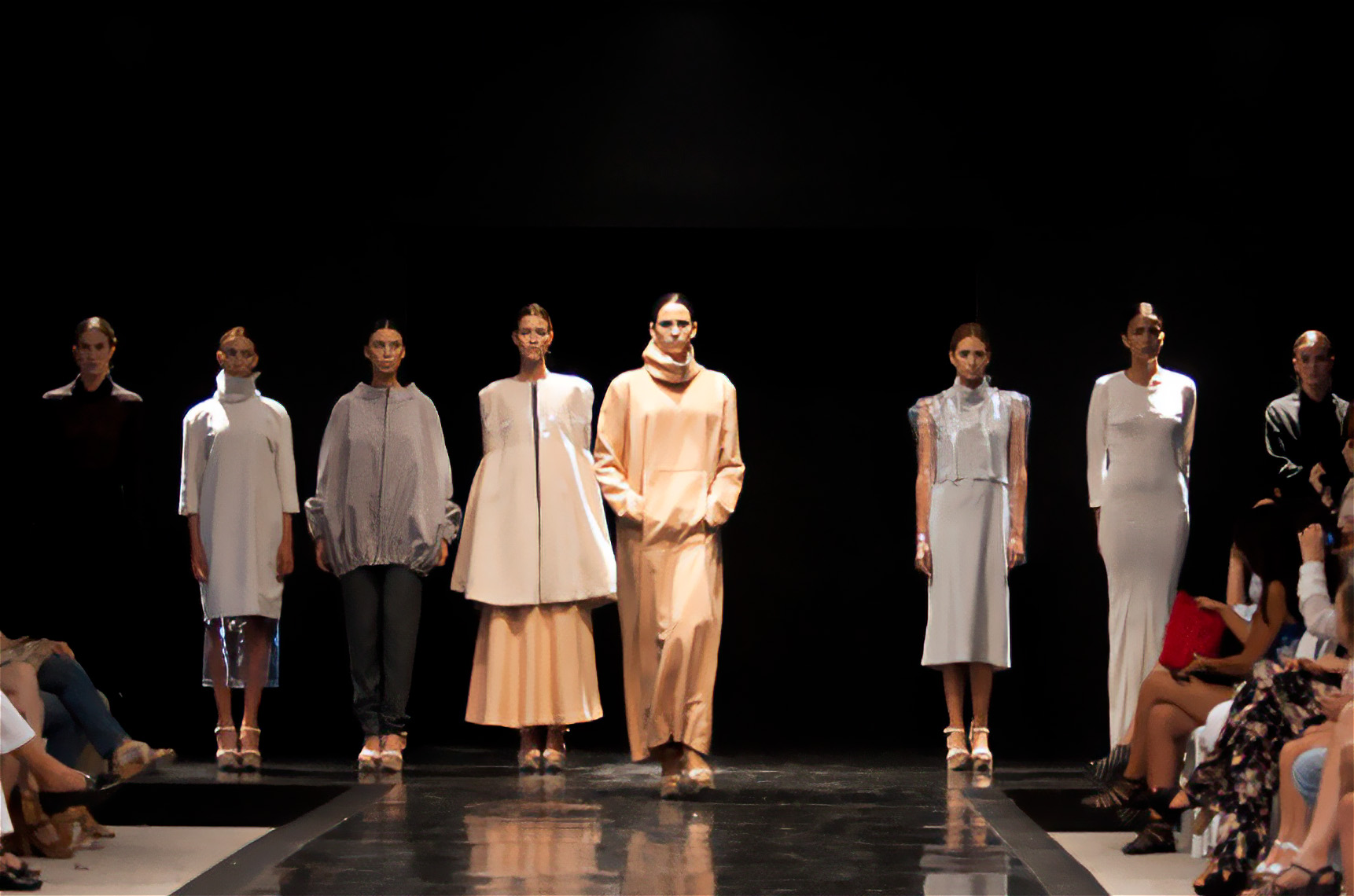
What will I learn?
You will be able to develop your career as:
- Fashion designer
- Coolhunter – trends forecasting.
- Artistic director
- Custom designer
- Accessory designer
- Textile and print designer
- Made to order designers for specific fields (sport,bridal …)
- Fashion illustration
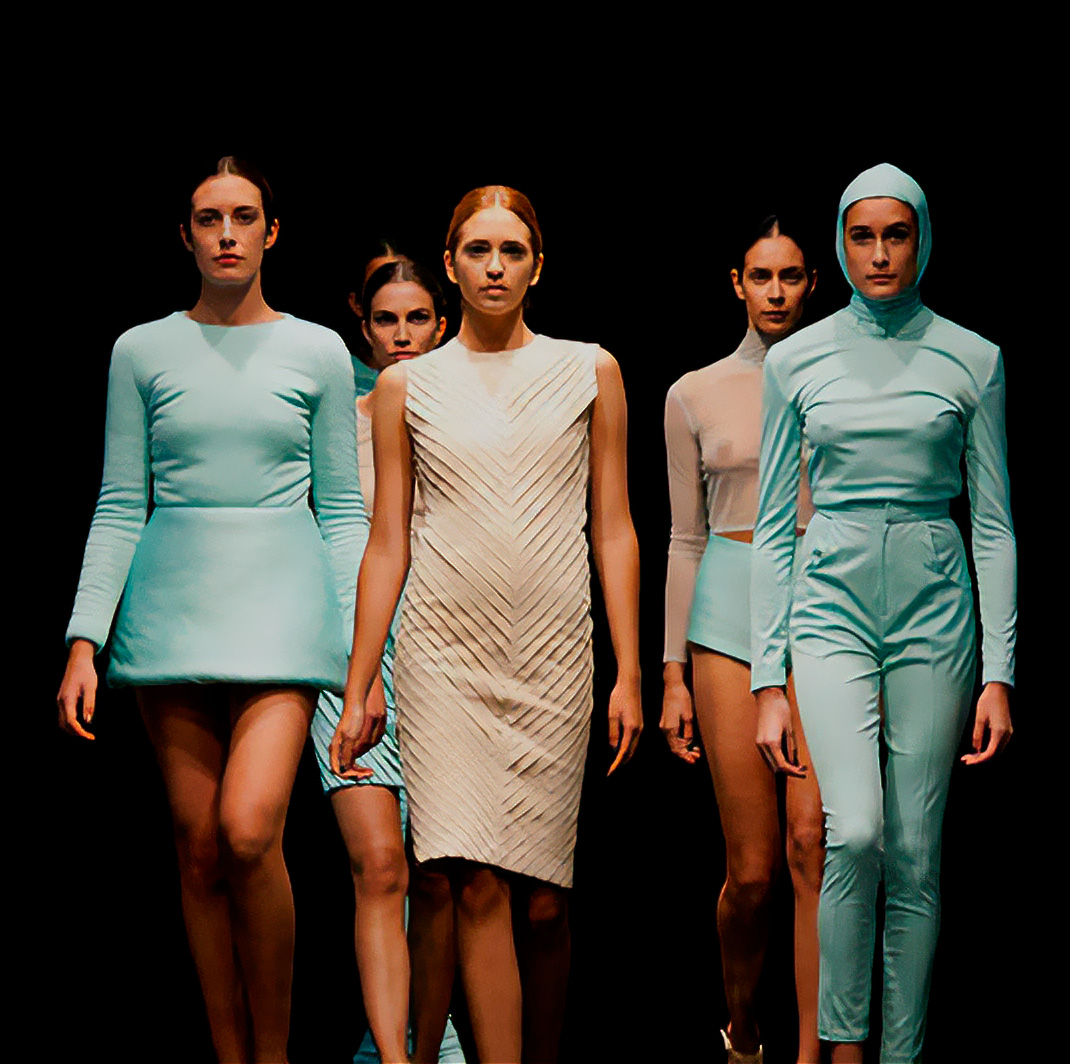
Subjects
1st year
| SUBJET | TYPE | FASHION DESIGN SPECIALTY | ||
|---|---|---|---|---|
| ECTS | WTH | |||
| 1st FMC | 2nd FMC | |||
| Visual language | FB/TP | 8 | 4 | |
| Project creativity and methodology | FB/TP | 4 | 2 | |
| Hand drawing and sketches | FB/P | 5 | 4 | |
| Expresión tecniques for design | FB/TP | 5 | 4 | |
| Representation systems | FB/TP | 8 | 4 | |
| Vectorial representation | FB/TP | 7 | 4 | |
| Digital Photography and audiovisual media | FB/TP | 5 | 3 | |
| Design History. XIX, XX and current century | FB/T | 4 | 3 | |
| Art and aesthetic history | FB/T | 4 | 3 | |
| Pattern-Making and Garment Construction Work 1 | OE/TP | 10 | 6 | |
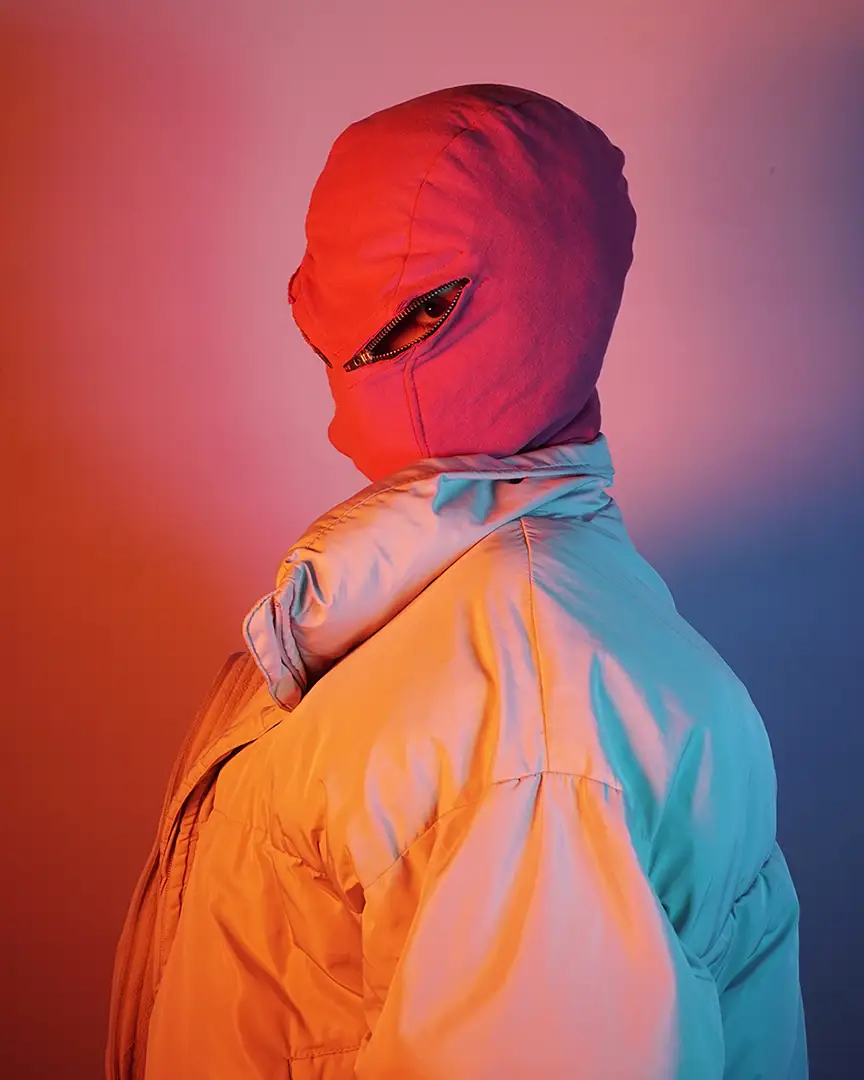
Su título va aquí
VISUAL LANGUAGE
8 ECTS / Annual / 4 hours per week
The subject Visual language has two different parts, but clearly related: a theoretical part and a practical one. Its contents are focused on the student to explore, understand and manage the visual and discursive elements of an image and the relationships between verbal and visual language.
CREATIVITY AND PROJECTS
4 ECTS / Annual / 2 hours per weeks
Nowadays, Design and Artistic Creation are intrinsically related. There is no design without creation or creation without design. Channel the creative paths, provide strategies to achieve the desired goals within the world of design, are objectives of this matter. All creative processes involve a methodology, a programmed way of organizing ideas, and during this course, students will learn to deal with these tasks. The purpose of the subject is to serve the student to acquire the basic knowledge for the methodological organization of the creative process and to stimulate in a practical way the act of creating and developing new ideas in fashion.
FASHION DRAWING AND SKETCHING
5 ECTS / Semester / 4 hours per week
Drawing and sketching is considered, within the Fashion Design work, as a basic task for representation and communication. This subject will introduce the student to the discipline of drawing, developing the ability to observe reality and space, through analytical understanding. As a universal language, it becomes an essential instrument that responds to our need for communication, allowing us to transmit ideas, descriptions and feelings.
TECHNIQUES FOR ARTISTIC EXPRESSION AND DESIGN
5 ECTS / Semester / 4 hours per weeks
In this subject, students will acquire the essential knowledge to be able to experiment with visual graphic techniques. They will apply and learn different techniques related to the use of color, texture, space and recognition of form, to express themselves in a creative way during the processes of the Fashion Design Project development.
REPRESENTATION SYSTEMS
8 ECTS / Annual / 4 hours per week
This course aims to set the basic concepts of geometry applied to fashion design and. It also includes a description of the main representation systems of three-dimensional objects (dihedral system, isometric and conical perspective), studying their geometric properties and how the representation of the different geometric elements are in each one of them.
VECTORIAL REPRESENTATION
7 ECTS / Annual / 4 hours per weeks
In this subject students will be taught the correct use of computer media in the fashion design sector, acquiring the necessary knowledge for its use. New technologies and their use of specific software for computer-aided design (CAD) are essential. Students will also learn to create vector representations applied to the processes of Fashion Design, ranging from the design of a shirt or a figurine to the creation of a personalized logo.
DIGITAL PHOTOGRAPHY AND AUDIOVISUAL MEDIA
5 créditos ECTS / Anual / 3 horas semanales
There is a close relationship between both disciplines: fashion design and photography. The fashion designer must know how to satisfactorily perform quality photographic works, how to document a collection, to record the activity in your workshops, to perform camera tests on possible models, to act as a coolhunter, to upload images to your own blog or simply to leave a record of something you consider necessary for your work. Students will need to know how to shoot and edit their own photographs and images.
HISTORY OF DESIGN IN THE XIX, XX AND XXI CENTURY
4 ECTS / Semester / 3 hours per weeks
The main purpose of this course is to make students discover the history of design while understanding in all its dimensions the works of art as part of the training process for their professional career. Students will learn how to identify different styles and artistic periods. You will also learn how to relate each image with its artistic, symbolic or cultural meaning and with different moments in the history of art.
HISTORY OF ART AND AESTHETICS
4 ECTS / Semester / 3 hours per weeks
Students will learn about different artistic manifestations in history, their relationship with the events and lifestyles of each period and will understand and value them as a form of human expression. This subject will focus on the most significant movements of the 19th century and, particularly, of the 20th century, as they are closer to contemporary culture and to the fact that these movements constitute the immediate precedents – ethically and aesthetically – of the current artistic expressions.
PATTERN AND CLOTHING MAKING: LEVEL 1
10 ECTS / Annual / 6 hours per week
This subject, mainly of practical nature, will deal with concepts, procedures and attitudes that provide students with fundamental and basic knowledge in Pattern making techniques. Students will also develop skills and abilities in the use of instruments, tools and machinery. Through the detailed, subtle, meticulous and precise preparation, the aesthetic sensibility and the critical attitude in the achievement of quality in the final product are developed in the annual subject.

2nd YEAR
Su título va aquí
ANTHROPOMETRY AND ERGONOMICS: THE BASIS
4 ECTS / Semester / 3 hours per weeks
Ergonomics is a discipline that seeks to adapt the conditions of the work to the human being, in terms of the adaptability of the human body to the work space and the machinery, seeking comfort, efficiency and safety.
The analysis of ergonomics should be an instrument to adapt the garment to the user’s body, which is an essential task of fashion designers, paying attention to the proportions of the human body, as well as the knowledge of the diversity of sizes of garments and elements of fashion design.
THREE-DIMENSIONAL CONSTRUCTION
5 ECTS / Annual / 3 hours per weeks
The basic contents in this course are: analysis of the three-dimensional shape,
the processes of artistic abstraction (synthesis, geometrization and stylization as a solution to plastic proposals) and the construction of the volumetric forms from the sketch or first idea to the final work.
GARMENT VOLUMETRY
4 ECTS / Semester / 4 hours per weeks
Sculptural and spatial languages, concepts, processes and sculptural techniques are used in fashion design in a constant way, and they are essential aspects to understand fashion. The human body is volume, shape and space and, in this sense, cloth must be considered as a tool to modify the body shape, volume or silhouette. This relation between concepts must be used in the creation and designing processes.
FASHION SKETCH
4 ECTS / Semester / 5 hours per weeks
Sketches are the tool to illustrate ideas and concepts in a design project. Fashion designers use drawing and sketching as an essential part of the creative process to express their ideas, choose colors and fabrics, and simulate materials or prints. The drawing of the human figure, its proportions, anatomy and poses are also important for fashion and this course includes the study of the human body from a fashion-sketching perspective. This subject requires the student to develop the ability to draw their own fashion sketches at a formal, functional and symbolic level.
SCIENCE APPLIED TO FASHION DESIGN
7 ECTS / Annual / 3 hours per week
The subject provides students with a basic scientific training and promotes the acquisition of mathematical skills and interaction with the physical and natural environment. In addition, it introduces scientific research methodology in the field of Fashion Design throughout activities and practical exercises. The subject develops both theoretical and practical concepts and techniques and focuses on the applications of mathematics and physics (new fabrics and fibers, research in textile laboratories, etc.).
ECO AND SUSTAINABLE DESIGN
4 ECTS / Semester / 3 hours per weeks
The subject will consider the ethical aspects related to the activity of fashion design, in relation to care and respect for the environment, the planet, the different societies and cultures, and all the eco friendly and sustainable practices in the fashion industry. Special attention will be paid to the respect for the environment and the appropriate patterns of human behavior will be taken into account in the wheel of consumerism.
ENGLISH FOR THE FASHION INDUSTRY
4 ECTS / Annual / 2 hours per weeks
The purpose of this subject is to provide the students with knowledge and language elements to allow them to manage situations in English, within a specific context, using technical-commercial vocabulary and expressions and within the professional design field in which they will have to perform at the end of their academic studies. Theoretical classes will be taught but to a greater extent they will be practical classes, in order to achieve a communicative skill.
TEXTILE WORKSHOP
5 ECTS / Annual / 3 hours per weeks
This course is an introduction to the essential knowledge of the textiles materials and its characteristics (types of fibers, dyes, spinning techniques, etc.),During this course, students will learn how to use the tools and equipment to create textiles in a traditional and artisan way. Experimentation will be key in this course.
PATTERN AND CLOTHING MAKING: LEVEL 2
II 8 ECTS / Annual / 5 hours per weeks
In a deeper perspective, students will deal with concepts, procedures and attitudes that provide students with intermediate techniques for pattern making and sewing. Students will develop skills and abilities in the use of instruments, tools and machinery more deeply than in the subject in LEVEL 1 in the Year 1 of this programme.
HISTORY OF THE COSTUME
3 ECTS / Semester / 2 hours per weeks
This subject, through the exploration of the historiographical sources and the evolution of the different styles and trends in fashion throughout the history, provides the student with the knowledge of the historical evolution of the clothing and garments, relating them to the cultural context. This course will make the students able to recognize and remember a series of historical and aesthetic references, materials and fashion styles, important for their future as designers.
HISTORY OF FASHION: DESIGNERS
3 ECTS / Semester / 2 hours per weeks
This subject analyzes the evolution of the shapes and client preferences in fashion throughout history, including an analysis of the current panorama, from the 19th century to the creation of the Fashion houses as we know them nowadays, paying attention to the most remarkable designer of each period. During the course, students will learn the historical evolution of clothing.
FASHION PROJECT: LEVEL 1
6 ECTS / Semester / 6 hours per weeks
The main purpose of this subject is to introduce the students to the essential aspects for a Fashion Design project, through practical exercises in which the students must develop the different parts of the process, follow a methodology, set strategies and do research to come up with good ideas, approaching different solutions to the design problems. The contents are mainly directed to the development of fashion projects for different brands, focusing on technical, functional and communicative aspects of the project.
DIGITAL FASHION ILLUSTRATION
3 ECTS / Semester / 3 hours per weeks
In this subject students will develop digital skills applied to fashion design. They will work on different tasks such as textile designs, prints, sketching, moodboards, etc.
The use of technology is essential in this course and it is an important instrument to communicate ideas and manage projects.
| SUBJET | TYPE | FASHION DESIGN SPECIALTY | ||
|---|---|---|---|---|
| ECTS | WTH | |||
| 1st FMC | 2nd FMC | |||
| Antropometrics and Ergonomics | FB/T | 4 | 3 | |
| Tridimensional Construction | FB/P | 5 | 3 | |
| ClothingVolumetry | OE/TP | 4 | 4 | |
| Fashion Drawing | OE/TP | 4 | 5 | |
| Pattem-Making and Garment Construction Work II | OE/TP | 8 | 5 | |
| Eco-design and SustainabiLity | FB/T | 4 | 3 | |
| TechnicaL English | FB/T | 4 | 2 | |
| Textil workshop: materials and processes | OE/T | 5 | 3 | |
| Scientific Foundation fordesign | FB/TP | 7 | 3 | |
| Costume History | OE/T | 3 | 2 | |
| Fashion History: Designers and Contemporary Trends | OE/T | 3 | 2 | |
| Fashion Design Projects 1 | OE/TP | 6 | 6 | |
| Digital Fashionlllustration | OE/TP | 3 | 3 | |
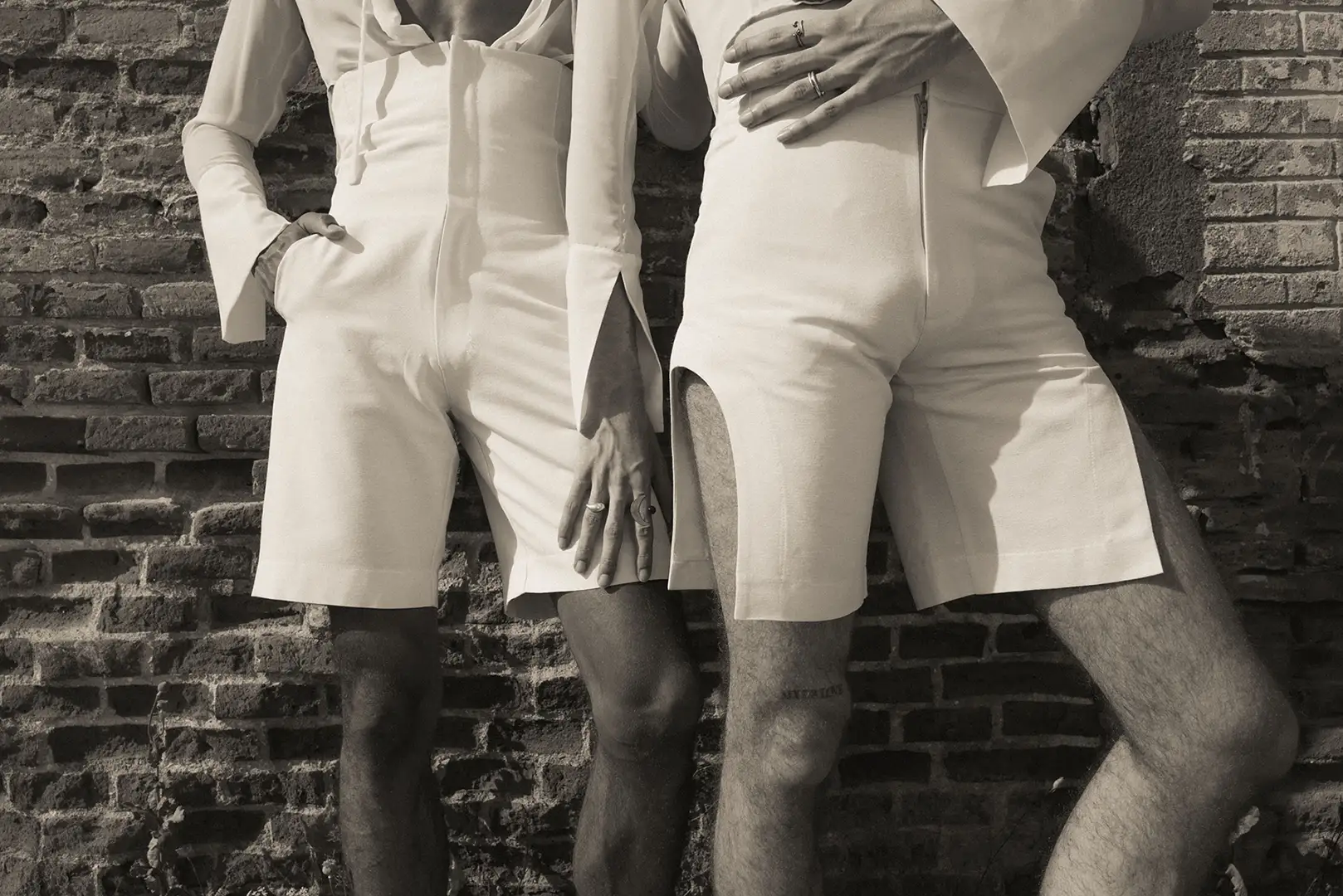
Third year
| SUBJET | TYPE | FASHION DESIGN SPECIALTY | ||
| ECTS | ||||
| 1st FMC | 2nd FMC | WTH | ||
| Theory and Culture of Design | FB/T | 6 | 3 | |
| Design Management | FB/T | 6 | 3 | |
| Digital Technology for Fashion Design | OE/TP | 4 | 4 | |
| Textile workshop: Proceses and finishing | OE/TP | 4 | 4 | |
| Printing Workshop: Techniques and processes | OE/TP | 4 | 4 | |
| Pattern-making technology and insdustrial garment construction | OE/TP | 5 | 4 | |
| Pattern-making and Garment Construction Workshop III | OE/TP | 7 | 4 | |
| Draping on the stand workshop | OE/TP | 6 | 4 | |
| Fashion Design Projects II | OE/TP | 6 | 4 | |
| FashionAccesories Design | OE/TP | 6 | 4 | |
| Brand Design | OP | 8 | 4 | |
| FashionPhotography | OP | 8 | 4 | |
| Fashion lllustration | OP | 8 | 4 | |
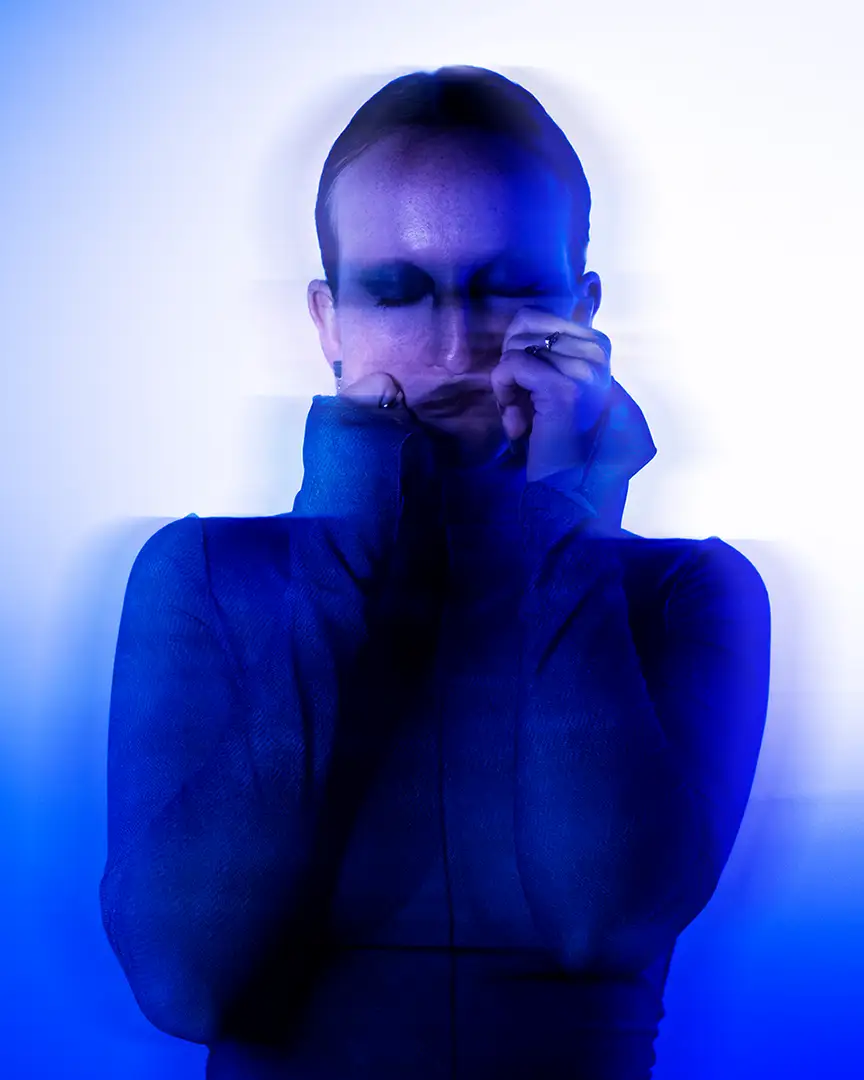
Su título va aquí
CULTURE AND THEORICAL CONCEPTS IN DESIGN
6 ECTS CREDIT / Annual / 3 lessons week
This subject focuses on those factors which can affect objects development and duration. It includes the knowledge of anthropology, sociology, literature or relations between the object and its use. These concepts will be developed through three different skills: comprehension, oratory and writing.
DESIGN MANAGEMENT
6 ECTS credit / Annual / 3 lessons week
This subject gives the students the essential knowledge to make decisions about management for fashion products. They will learn legal aspects and will develop several skills for the fashion industry related to economy, production and business activities.
TEXTILE PRINTING: DIFFERENT TECHNIQUES
4 ECTS CREDIT / semester-long / 4 lessons week
Textile printing is a wide extended activity in fashion. This subject will teach students the different techniques for printing textiles, from handmade to digital printing, including all the processes from designing the motives to the production of the actual fabric.
TEXTILE FINISHING AND TEXTILE PRODUCTION
4 ECTS credits / semester-long / 4 lessons week
During this course, students will learn the different finishings and modifications in fabrics. They will discover how fabrics are developed and what types of fabric production exists, as well as the skills to create and produce fabrics in an artisan way.
DIGITAL TECHNOLOGY FOR FASHION DESIGN
4 ECTS credit / semester-long / 4 lessons week
This course will help students to know the importance of digital technology in fashion. They will work digital skills to create print designs and rapports, develop digital prototypes for garments and 3D digital modelling.
PATTERN TECHNOLOGY AND INDUSTRIAL CLOTHING
5 ECTS credits / semester-long / 4 hours per week
The technology of Pattern Making and Industrial Clothing is a compulsory theoretical-practical subject of the specialty of Fashion Design, pertaining to the Materials and Technology applied to Fashion Design subject.
This subject focuses on the study of industrial processes for clothing and the technology of the textile sector, developing extensively the section dedicated to computer pattern making and the new technologies applied to it, although it also covers the development of technical and searches for materials at the industrial level. For the study and development of the different units that make up the course, as well as for carrying out the programmed activities, specific software for fashion design and pattern design will be used. The theoretical-practical nature of the subject conditions in it the importance of personal work and research, always directed by the teacher, which will be manifested in the activities to be carried out by the students, seeking in it the development of autonomy and ability Search and management of different sources of information.
C.A. PATTERN MAKING AND INDUSTRIAL PRODUCTION
5 credits ECTS / semester-long / 4 lessons week
C.A. Pattern Making focuses on the process of creating patterns using specific software. This allows fashion students to specialised in a certain field inside fashion business. Industrial Production is the part of the course which focuses on specification sheets, fabric sourcing and materials.
PATTERN MAKING AND SEWING TECHNIQUES
7 ECTS CREDIT / Annual/ 4 lessons week
This course offers advanced pattern making and sewing skills once Level 1 and Level 2 are completed. Students will learn tailoring and bespoke design and production, through artisan techniques.
MOULAGE: PATTERN MAKING ON MANNEQUIN
6 ECTS CREDIT / Annual / 4 lessons week
Pattern making on mannequin is a technique to create original patterns that can’t be created on table. Once the shape and the volume are done on the mannequin, this pattern will be transferred to paper.
FASHION DESIGN PROJECT DEVELOPMENT
6 ECTS CREDIT / semester-long / 4 lessons week
This course offers advanced project developing once Level 1 is completed. The main purpose of this course is to find solutions to specific problems in fashion production and design, working on different methodologies to explore different aspects (functional, technical, finantial, etc.). Trends and customer behaviours will also be studied as part of this course.
FASHION ACCESSORIES: DESIGN AND CRAFTING
4 ECTS CREDIT / semester-long / 4 lessons week
Mainly of practical content, this course develops and includes the techniques to create fashion accessories, paying attention to trends and styles, from the idea to the actual accessory.
OPTIONAL SUBJETC
8 ECTS CREDIT / Annual / 4 lessons week
Depending on the students’ preferences, there are several optional subjects: exploratory sewing, fashion photography and image processing, fashion illustration, Beachwear, Lingerie or Corsetry.
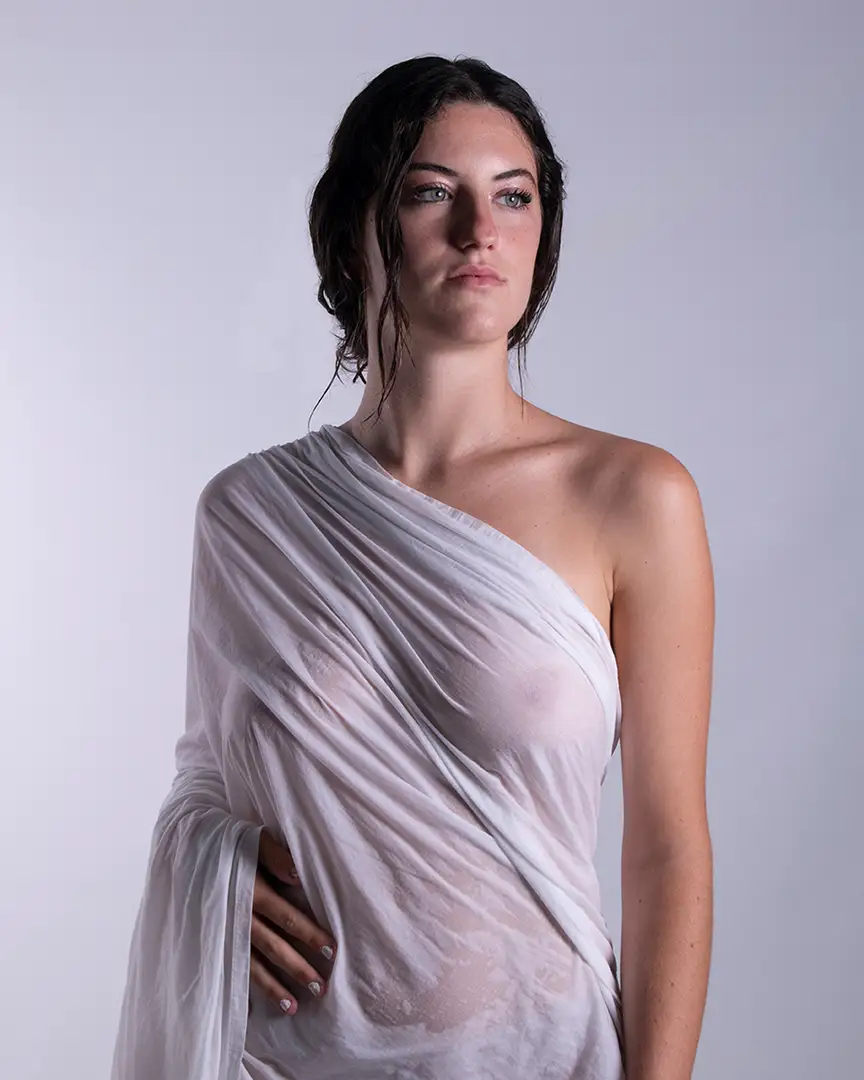
Fourth year
Su título va aquí
THE IMAGE IN FASHION
4 ECTS CREDIT / semester-long / 4 lessons/week
To understand the importance of the image in fashion is fundamental for a fashion designer. To study and to consider the theories of perception, the expression and the sensation applied to the fashion image, is a key part of the work of a fashion designer. The creation of the concept of fashion image, semiotics of the image, archetypes and stereotypes in the analysis and criticism of trends will be studied in this subject.
DIGITAL PROJECT: COMMUNICATION IN FASHION
8 ECTS CREDIT / semester-long / 6 lessons week
This course is oriented to the production and digital diffusion of the students’ own works and their professional image. They need to learn the use of advanced digital tools for the realization of a digital final art and its introduction in digital media, social networks and forums. During this course, students will create their personal portfolio, understood as a project that evidences their educational development and serves as an instrument for professional presentation.
FASHION STYLING
8 ECTS CREDIT / semester-long / 6 lessons/week
This subject prepares the students to become future fashion stylists and creators of style. It has two main objectives: the first objective is to develop in the student the practical capacities for the design and the creation of the fashion images to sell products and garments; the second objective is to learn about the aesthetic issue in fashion aand to research from the collections made in design in order to create a personal style proposal.
COSTUME DESIGN
6 ECTS CREDIT / semester-long / 6 lessons/week
The subject focuses on how a fashion designer / costume stylist works in the processes of professional areas related to the performing arts and audiovisual media. This change of register is defined mainly by the conditioning factors of these media on the one hand at the level of language and dialogue with a text or script. The subject is defined in terms of organization and adaptation of work to larger projects aimed at responding to needs of industries and specific aesthetic and production approaches.
MANAGEMENT OF FASHION PRODUCTS
2 ECTS CREDIT / semester-long / 2 lessons/week
The main purpose of this subject is to prepare students to perform different professions and activities related to fashion products, providing them with a polyvalent training that allows them to develop an activity at work and business level. It will teach students the knowledge, skills, as well as the use of documentary and technical resources.
MARKETING AND FASHION COMMUNICATION
2 ECTS CREDIT / semester-long / 2 lessons week
This subject will teach the students to make strategic marketing decisions, based on an analysis of the market and the environment. Thay will analyze the role of marketing and will make decisions concerning the design and development of the product, paying attention to customers’ desires and real needs. Marketing operates at all levels in the fashion system, affects the entire supply chain from product development to retail, and it is as relevant to haute couture as to mass fashion.Students will work on an exhaustive analysis of the marketing process from initial research to the creation of branding and communication campaigns.
OPTIONAL SUBJECT
8 ECTS CREDIT / semester-long / 5 lessons week
Students can choose an optional subject among those offered in the programme. These optional subject could be the following ones:
Flamenco in Fashion: Pattern making and sewing techniques to create Flamenco dresses.
Fashion Film project: The knowledge of visual tools in fashion is fundamental in the training of its professionals. Knowing their theories, language and expression, is essential for the marketing and dissemination of works and collections, allowing launching a product under an innovative concept.
Printing workshop:students will learn techniques and processes to design and create prints and develop the different printing systems they know, expanding the approaches initiated in the previous course.
WORK PLACEMENT / INTERNSHIP
8 ECTS Credit / Semester-long / 5 Lessons week
The External Academic Internships are a formative activity carried out by the students of the Higher Artistic Education in Fashion Design in the second semester of the fourth year of these studies. The objective is to apply and complement the knowledge acquired in their academic training, promoting the acquisition of competencies that prepare them for professional activities in the field of fashion and obtaining practical experience that facilitates their integration into the job market, enhancing their future employability and fostering their capacity for innovation, creativity, and entrepreneurship.
The External Academic Internships have a total duration of 300 hours and can be carried out in collaborating entities with which the Centre establishes collaboration agreements, such as Fashion Design companies, Communication, Styling, Studios, Workshops or Magazines, Institutions, and public and private entities at the regional, national and international level.
The External Academic Internships are supervised by a qualified professional tutor (Work Tutor) in the host entity and an Academic Tutor from the EASD who is a teacher appointed by the Director and the General Coordinator of External Internships at the Centre.
END-OF-STUDIES PROJECT
12 ECTS CREDIT / semester-long / 5 lessons/week
The Final Project pursues the realization of a project that develops a practical project that incorporates the totality of knowledge and competences acquired by the student throughout his training.

| SUBJET | TYPE | FASHION DESIGN SPECIALTY | ||
|---|---|---|---|---|
| ECTS | WTH | |||
| 1st FMC | 2nd FMC | |||
| Fashion Image | OE/TP | 4 | 4 | |
| Integrated Digital Project | OE/TP | 8 | 6 | |
| Sty le, Fashion and Communication | OE/TP | 5 | 5 | |
| Períorming arts and Audiovisual Media Style | OE/TP | 6 | 6 | |
| Fashion Product. Organization and control | OE/TP | 2 | 2 | |
| Fashion Marketing | OE/TP | 3 | 2 | |
| Flamenco Fashion | OP/P | 8 | 5 | |
| Fashion Film | OP/TP | 8 | 5 | |
| Textile workshop: Proceses and finishing II | OP/TP | 8 | 5 | |
| End of Course Project | 12 | 5 | ||
| Extern Internship | 12 | 25 | ||
